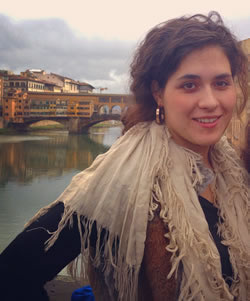“Remember me, but ah! forget my fate,” sings Dido, queen of Carthage, as she slowly succumbs to her suicide. The final scene in Henry Purcell’s English opera Dido and Aeneas brings me to tears every time. Incapable of living without her lover Aeneas, who is leaving Carthage, Dido kills herself. However, when I saw Dido and Aeneas at the Opera di Firenze this month, I felt sad not just for Dido, but opera itself, which like Dido is slowly slipping away from its audiences.
As an opera enthusiast, I was excited about living in Florence because it is, among other things, the birthplace of opera. In the United States, opera is appreciated, but I wouldn’t say it is popular, especially among college-aged students; so when I went to see the Opera di Firenze’s February production of I puritani, by Vincenzo Bellini, I was surprised to see that college-aged students comprised about half of the audience.
However, after the first act of the opera, the audience shrunk by about one third. When I returned back to my seat, I was suddenly surrounded by a sea of empty seats—seats that only moments ago were occupied by my peers. While it was totally irrational, I instantly felt agitated, as if these strangers were friends who left my birthday party early for a “cooler” event. I understand that opera is not for everyone, but I was shocked by the disrespect for the art form displayed. Raised on MTV, American students here in Italy don’t seem to have the capability of sitting through more than one act of an opera.
This moment was especially disconcerting to me since I am seriously contemplating a career in opera. While it pains me to say it, this moment was my first glimpse of death—the death of the art form known as opera.
This is hardly breaking news. The New York Times has published many articles describing the dire financial straits opera companies are in because ticket sales and donations are low. The San Diego Opera almost shut down in March 2014 when the board voted to close the opera company after its forty-ninth season. Too many years of poor profits and philanthropic support left the company destitute. Luckily, a successful crowdfunding campaign, which raised over two million dollars, rescued the company from being shuttered.
Even the Metropolitan Opera, the United States’ largest and most prominent opera company, is facing financial turmoil. Ending the year with a deficit of $22 million, the Met minimized its budget by cutting wages of the orchestra, chorus, and other union workers. Even stars like Renée Fleming and Plácido Domingo took a pay cut. The Met’s endowment has also shrunk to the equivalent of a single year’s budget.
The Opera di Firenze, the premier opera company in Florence, offers cheap tickets (starting at 10 euros), a bargain compared to the $30 student price for performances by the Washington National Opera. This offers young adults a chance to experience opera without making a large personal investment. I can’t help but wonder if the cheap ticket price—far less than a typical arena rock concert—encourages young people to leave early?
On the one hand, whether the audience stays or goes does not matter. They are paying for tickets, which, in turn, keeps opera companies afloat. However, if there is little audience retention, they are unlikely to become patrons of the art or to purchase tickets to another show. Sadly, no future ticket sales leaves opera companies with no future. One ticket now should equate to more purchases in the future, which is why opera needs reach out to younger audiences. By making a connection now, they just might have a chance to cultivate a new generation of enthusiasts.

